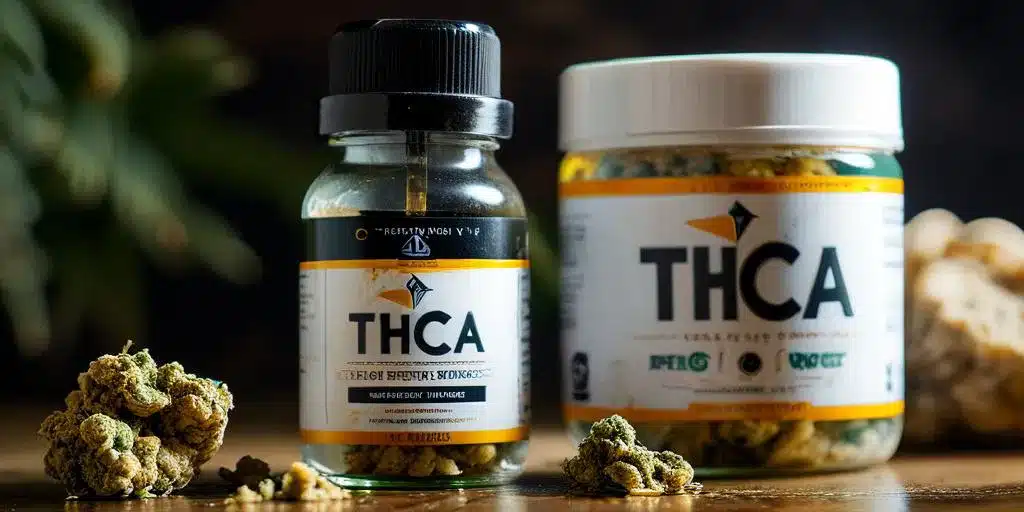Table of Contents
Trying THCa products for the first time can be both exciting and a bit overwhelming, especially for those new to cannabis. Individuals often notice effects like relaxation, mild euphoria, and enhanced sensory experiences, though these may vary depending on dosage and individual tolerance. Beginners should be aware that THCa itself is not psychoactive until it is heated, which means the effects often become noticeable after smoking or vaping.
It is recommended that newcomers start with a low amount and pay attention to their body’s response. Dry mouth, mild dizziness, or nausea have been reported by some users, so taking it slow can help ensure a positive first experience. Those looking to explore or shop discounted THCa products should review reputable sources before making a decision.
Key Takeaways
- THCa is non-psychoactive until heated and is commonly used by beginners.
- Expect mild relaxation and euphoria if trying THCa products for the first time.
- Start with a low amount and buy from reputable retailers.
What to Know Before Trying THCa Products
THCa, or tetrahydrocannabinolic acid, is gaining attention for its unique properties as a non-psychoactive cannabinoid found in raw cannabis. Learning about its characteristics, safety, and differences from THC will help users make informed decisions before their first experience.
Understanding THCa and Its Properties
THCa occurs naturally in cannabis and hemp plants as the acidic precursor to THC. In its raw form, it does not produce the psychoactive effects typically associated with cannabis use. Instead, THCa is classified as a non-psychoactive cannabinoid.
Studies and anecdotal evidence suggest several potential therapeutic benefits, including anti-inflammatory and neuroprotective effects. THCa is often found in raw cannabis flower and hemp-derived products. Consumption methods include juicing raw flower, tinctures, edibles, and topical uses, but users will not experience a high unless the compound is heated, which converts it into THC. Common forms available are flower, concentrates, and extracts. Because it is non-psychoactive until heated (decarboxylated), some consumers use THCa for wellness reasons without the recreational effects typically linked to marijuana.
Legal Considerations and Product Safety
The legal status of THCa products depends on their source and local regulations. In the United States, many hemp-derived THCa products comply with the 2018 Farm Bill by containing less than 0.3% Delta-9 THC by dry weight. However, heating or vaping THCa transforms it into Delta-9 THC, which has different legal restrictions.
To reduce risk, buyers should look for products that are lab-tested with an accessible certificate of analysis (COA )showing cannabinoid content and contaminant screening. Avoid unregulated or poorly labeled items from unverified sellers, as these may not meet safety standards or could contain excess THC. Product safety also involves knowing the method of consumption. Options include smoking or vaping THCa flower, dabbing concentrates, edibles, tinctures, or consuming raw cannabis directly.
How THCa Differs from THC and Other Cannabinoids
THCa differs from THC in both its chemical structure and its effects. While both originate from the cannabis plant, THCa is the non-psychoactive acid precursor to THC; it does not bind directly to CB1 cannabinoid receptors in the brain until it loses a carboxyl group through heating. Unlike THC, which produces well-known intoxicating effects, THCa remains non-psychoactive in its raw state. Compared to other cannabinoids like CBD, which is also non-psychoactive, THCa offers its own set of potential therapeutic properties, such as anti-inflammatory and neuroprotective benefits.
Cannabis products often contain multiple cannabinoids, which may contribute to the entourage effect—a theory that cannabinoids may work better together than in isolation. This highlights the importance of understanding the presence and ratio of cannabinoids in products like isolates, extracts, and full-spectrum cannabis flower.
What to Expect During Your First THCa Experience
Trying THCa products for the first time involves selecting between different forms, understanding how much to use, and preparing for specific effects that can range from relaxation to changes in coordination. Each of these factors can influence your comfort, safety, and the overall quality of the experience.
How to Use THCa Flower and Other Forms
THCa is available in several forms, including flower, tinctures, and concentrates. The most common method is smoking or vaporizing THCa flower, which requires heating to activate its effects through decarboxylation. When choosing flower, users often select between indica, sativa, or hybrid strains to tailor the experience.
The flavor and aroma depend greatly on the strain’s terpene profile, with some having earthy notes and others offering sweeter or citrus-like tastes. Beginners might enjoy lower-potency flower, as it produces more manageable effects. It is recommended to prepare a comfortable environment, free of distractions, and ideally be in a setting where outside help is easily accessible.
Dosage Considerations for Beginners
Starting with a low dose is vital for first-time users to avoid unwanted effects. A general guideline is the “start low and go slow” approach, which helps individuals gauge their tolerance and response to THCa’s potency. For flower, this may mean taking just one or two inhalations and waiting at least 15–30 minutes before considering more.
Those using tinctures or edibles should consult the product’s label for precise dosing instructions. Beginners are encouraged to avoid taking additional doses until the initial effects have fully set in. If available, consider discussing personal dosage and any pre-existing health conditions with a healthcare professional. Individuals with previous cannabis experience may find they require a different starting dose. Tracking dosage and effects in a journal can also be helpful for adjusting future sessions for safety and comfort.
Conclusion
THCa products offer a unique starting point for those new to cannabinoids, providing a range of experiences that depend on the method of use and dosage. Beginners should focus on accurate dosing, a comfortable setting, and hydration for a smoother introduction. Each person’s response can vary, so patience during the process helps ensure a positive first experience with THCa.


